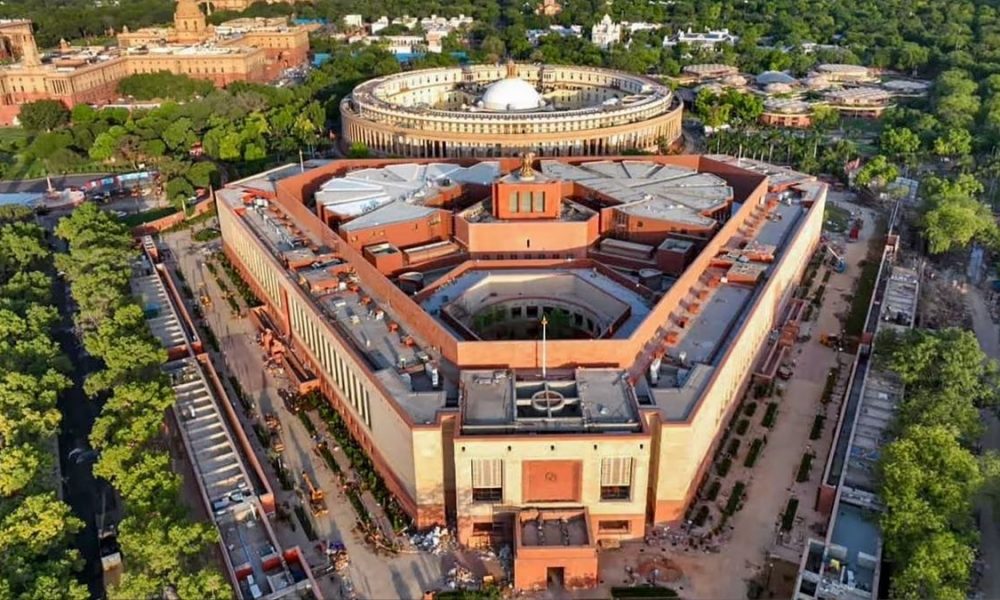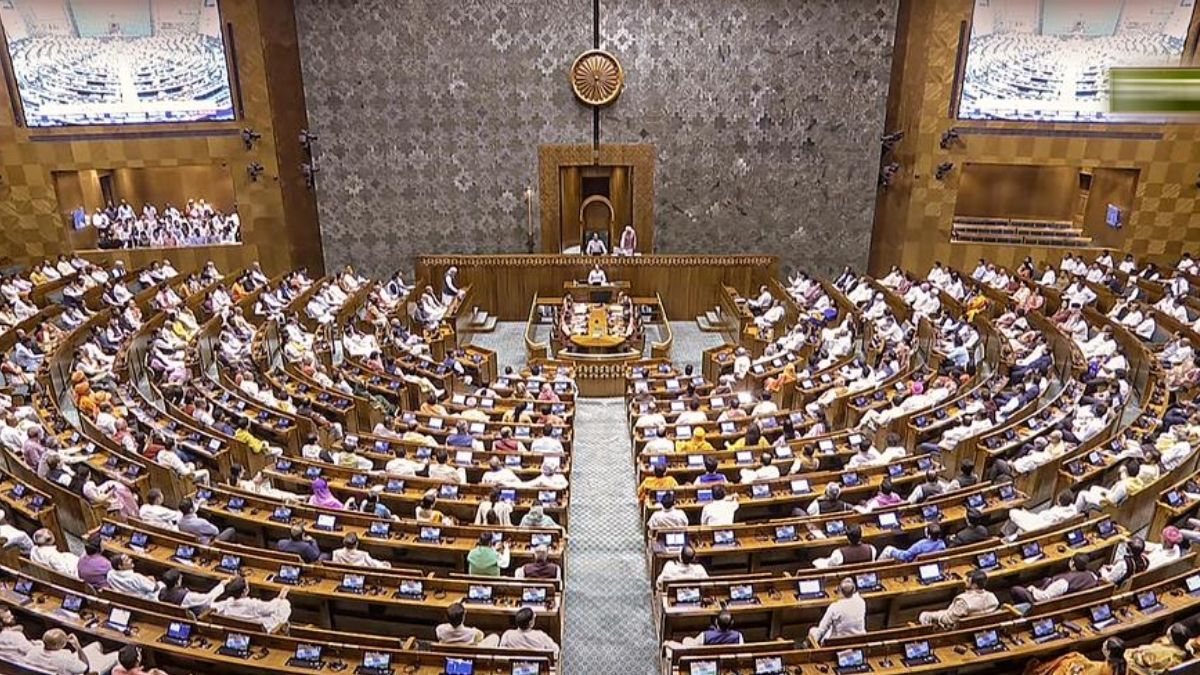
New Delhi: The year 2023 was all about highs and lows for India as we successfully conquered the moon with our Chandrayaan-3 mission but fell short of winning the cricket World Cup. But the major turnaround was on May 28, when the country witnessed democracy turning its pages with the inauguration of the new Parliament Building.
The old Parliament House in India, designed by British architects Sir Edwin Lutyens and Herbert Baker, is a colonial-era building that underwent six years of construction from 1921 to 1927.
Initially named the Council House, it served as the home for the Imperial Legislative Council.
The need for a new Indian Parliament building was long overdue.
According to government data, the old building has narrow seating space for Members of Parliament, distressed infrastructure, obsolete communication structures, safety concerns, and inadequate workspace for employees.
The building’s structural safety is a cause for concern, considering that the present Parliament building was constructed during a time when Delhi was categorised as Seismic Zone-II. However, the current seismic classification for the area is Seismic Zone IV.
The Lok Sabha Hall now has a capacity of up to 888 seats, and the Rajya Sabha Hall, now enlarged, can accommodate up to 384 members. This expansion enables joint sessions of Parliament to convene with a combined capacity of up to 1,272 seats, fostering a more inclusive assembly during such sessions.
The House proceedings began on September 19 with Prime Minister Narendra Modi leading the walkathon of MPs from old building to new Parliament building.
PM Modi in his inaugural speech said that this building is new, everything here is new, all the arrangements are new, and all the colleagues are in new attire.
“Everything is new, but amidst all this, there is also a symbol of a great legacy that connects the past and the present. It’s not something new; it’s old. It bears witness to the first rays of freedom which are present among us even now. It connects us to our rich history. And as we enter the new Parliament, it bears witness to the first rays of freedom, which will inspire future generations. It is the sacred Sengol which was first received by Pandit Nehru, the country’s first Prime Minister. With this Sengol, Pandit Nehru performed the ritual and initiated the celebration of independence,” he said.
“Therefore, this very significant past is connected with this Sengol. It is also a symbol of Tamil Nadu’s great tradition, as well as symbolizing the unity of the nation. And today, the Sengol which adorned the hands of Pandit Nehru becomes the source of inspiration for all of us, What greater pride can there be than this?” he added.
It also attracted criticism from the opposition, with Congress leader Jairam Ramesh terming it as ‘Modi Multiplex’.
“The new Parliament building launched with so much hype actually realises the PM’s objectives very well. It should be called the Modi Multiplex or Modi Marriot. After four days, what I saw was the death of confabulations and conversations–both inside the two Houses and in the lobbies. If architecture can kill democracy, the PM has already succeeded even without rewriting the Constitution,” Jairam Ramesh said on X.
With the Parliament shifting from the old building to the new building, Prime Minister Narendra Modi suggested that the building, where meetings of the Constituent Assembly were held to frame the Constitution, should be known as ‘Samvidhan Sadan’.
“I have a suggestion. Now, when we are going to the New Parliament, its (Old Parliament building) dignity should never go down. This should not be left just as the Old Parliament building. So, I urge that if you agree, this should be known as ‘Samvidhan Sadan’,” he said.
Amid all of this, the Nari Shakti Vandan Adhiniyam bill also called Women’s reservation bill became the first bill to be tabled in the new Parliament and also passed in both houses.
On September 20, it was passed in Lok Sabha. The Bill was passed following division with 454 members voting in favour of the legislation and two against it on the motion for the passage. The amendments moved by opposition members were negatived and there was also voting on clauses of the bill.
On September 21, Nari Shakti Vandan Adhiniyam was passed in Rajya Sabha which marks the PM’s birthday according to the Hindu calendar.
The Rajya Sabha passed the Women’s Reservation Bill unanimously with 214 members voting in support and none against.
The Bill was passed in the two Houses by a majority of the total membership of the House and by a majority of not less than two-thirds of the members of the House “present and voting”.
The Rajya Sabha passed two separate bills on Jammu and Kashmir on December 18.
The Jammu and Kashmir Reorganisation (Second Amendment) Bill, 2023, seeks to amend the Jammu and Kashmir Reorganisation Act, 2019. The bill was passed by the Lok Sabha too.
The Government of Union Territories (Amendment) Bill, 2023 seeks to reserve 33 per cent of seats in the Jammu and Kashmir, and Puducherry Assemblies for women. It was alsi passed in the Lok Sabha in 2023 winter session.
With just months of its inauguration, during the Winter Session, the new Parliament witnessed the security breach that occurred on December 13, when two youths jumped into the Lok Sabha chamber during Zero Hour, setting off smoke cans and raising slogans.
A new record was set up in the new Parliament building in this Winter Session as three key Bills replacing the criminal laws were passed while 146 MPs were suspended over the ruckus created for demanding a statement from Union Home Minister Amit Shah over the Parliament security breach.
Hundred MPs were suspended from Lok Sabha, and another 46 from Rajya Sabha for unruly behaviour, disrupting proceedings by showing placards and raising slogans over the breach issue.
Both houses passed the three criminal bills–the Bharatiya Nyaya (Second) Sanhita Bill, the Bharatiya Nagarik Suraksha (Second) Sanhita Bill and the Bharatiya Sakshya (Second) Bill — replacing the colonial laws namely the IPC, the CrPC and the Evidence Act.
Piloting the three bills, Union Home Minister Amit Shah said it was the “beginning of a new era” as “the purpose of these bills is to give justice, not punishment.”
“For the first time in history,” Shah said, these bills were made by India and approved by the Indian Parliament for Indians.”








